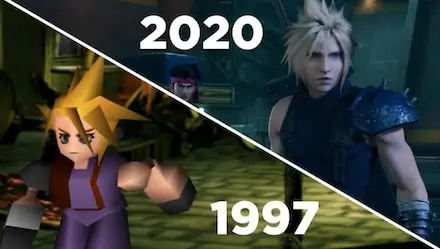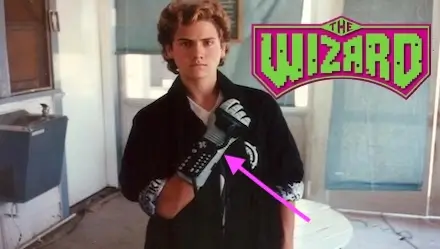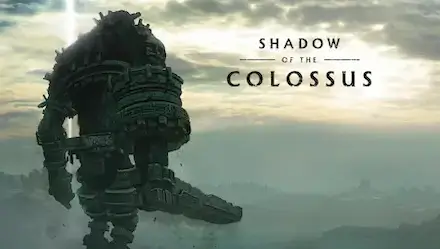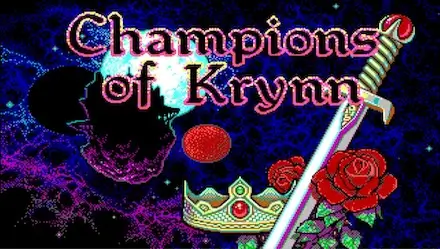Thinking about how the latest and greatest new game consoles can't play older game discs makes me realize how strong the feeling of nostalgia for video games is. I enjoy playing nostalgic retro video games on their original systems. It brings back good memories and allows me to experience them exactly as they were meant to be played.
Nostalgic video games often come back with sequels and reboots. Franchises like Tomb Raider and Final Fantasy are examples of this. These games attract both longtime fans and new players. The emotional connection I feel to these classic titles keeps them alive in the gaming community.
Their inclusion in popular culture, like novels or movies, helps keep these beloved games important and well-known. It's exciting to see modern gamers find the joy of classic video games.
I look forward to how these games will keep evolving and attract new audiences. As games evolve, the appeal of nostalgic video games shows that their enjoyable experiences will always connect with players like me.
The Table of Contents
Rediscovering Nostalgia: The Revival of Classic Gaming Experiences
We often buy and sell video games, downloading them digitally from current-gen marketplaces. Many of us enjoy discovering nostalgic games hidden as Easter eggs in newer titles.
current-gen marketplaces. Many of us enjoy discovering nostalgic games hidden as Easter eggs in newer titles.
For example, you can play Maniac Mansion and its sequel, Day of the Tentacle. You can also find Atari 2600 games like River Raid and Chopper Command in Call of Duty: Black Ops Cold War.
Many iconic video games are still popular today:
Thanks to sequels and reboots. Recent examples include Thief 4, the 2020 remake of Final Fantasy VII, and the comeback of the Resident Evil series. These games demonstrate how much fans love these franchises and how they are being updated for new players.
They also appear in popular culture, showing up in nostalgic works like the 80s-themed novel Ready Player One. Many films feature them too, including The Wizard, Super Mario Brothers, Wreck-it Ralph, Prince of Persia, and Angry Birds. Video game remakes and re-releases show that retro gaming is still a favorite part of today’s gaming culture.
Watch this vintage Atari 2600 commercial and relive the excitement of gaming’s early days.
From Classics to Obscurity: The Uneven Aging of Iconic Video Games
Not all games age the same way. When I think about classic video games, I notice they tend to show their age more quickly than books or movies. The game mechanics and graphics that once amazed us have become outdated, making some beloved games hard to revisit.
I remember trying to return to early D&D based PC games like Champions of Krynn (1990). Unfortunately, I found the split-screen interface and simplistic graphics to be less engaging than I had hoped. These thoughts show that some games are important in gaming culture, but not all of them have held up well over the years.
engaging than I had hoped. These thoughts show that some games are important in gaming culture, but not all of them have held up well over the years.
When we compare retro games to modern games, it's obvious that today's graphics and gameplay are much more advanced. This creates a very different experience for players. I love classic video games because of the nostalgia they bring. However, I know that some of them are better left behind as we move forward with new game designs.
The Enduring Allure of Nostalgic Video Games: Why They Still Captivate Players
Recently, I've revisited text-based games, or interactive fiction, which, despite lacking graphics, offer a unique charm. While the interface can be frustrating, I find it less off-putting than some of the earliest D&D games and graphic adventures. This experience has reminded me that nostalgic video games can still provide captivating storytelling and immerse players in creative worlds
While I don't see myself playing games like the original Wolfenstein or Doom anytime soon, I still like to revisit some iconic games like the old Super Mario titles. These timeless classics maintain their fun and addictive gameplay, showcasing why they remain beloved in gaming culture.
My wife is also a fan of Pokémon Snap, which further illustrates how certain iconic video games continue to be enjoyable, proving that some titles age gracefully and stay relevant even in today's gaming landscape.
The Impact of Evolving Game Conventions on Old School Gaming Experiences
In my experience, the difference between enjoying and getting frustrated with classic video games often comes from how much these game genres have changed over time. After playing modern titles like Modern Warfare 3, it becomes challenging to go back to classics like Wolfenstein, as the latter feels limited in gameplay and interaction.
After playing modern role-playing games like Shadow of the Colossus and Persona 3, I find it challenging to go back to older games like the Krynn D&D CRPGs. They feel outdated compared to today’s games.
challenging to go back to older games like the Krynn D&D CRPGs. They feel outdated compared to today’s games.
The technology of the past heavily constrained early classic video games, which can make them feel less engaging today. I still enjoy special games like A Mind Forever Voyaging and Anchor head, as well as timeless classics like the original Super Mario Bros, which I mentioned above.
These games demonstrate their genre's potential, excelling as text-based adventures and side-scrolling platformers. New technology has introduced new ways to play games, but the appeal of iconic video games still exists. This shows that good design lasts through the years.
Nostalgic Video Game: The Big Wild Card in Retro Gaming
Nostalgia significantly influences my experiences with classic video games. I returned to Krynn primarily due to fond memories of playing it as a child, but I found it nearly unplayable today. The advancements in RPG technology and conventions have made older titles like this feel limited and outdated.
I also revisit Final Fantasy VII for similar reasons. Even with older graphics and some outdated features, the mix of good storytelling and nostalgia makes the game more enjoyable for me. If I hadn’t played it back in '97, I doubt I would find it as captivating in the 2020s.
This highlights how video game nostalgia acts as a wild card in our gaming experiences. Some classic video games may not meet today's standards, but the feelings we have for them can make playing them again fun and special.
Conclusion: Reflecting on Nostalgic Video Games
As I finish my thoughts on classic video games, I think about how nostalgia affects our gaming experiences. It often makes me enjoy games more and helps me ignore some flaws in older games. However, I also think about how their gameplay compares to newer games that have better graphics and mechanics.
Some classic games were great in their time, but they can be hard to enjoy now because of old technology or difficult controls. I often question if other factors influence my perception of these nostalgic games, beyond just gameplay quality.
Interestingly, some games I might hesitate to revisit could benefit from a remake with updated HD graphics. Titles that made a strong impression on me could become even better with updated visuals and gameplay. This would blend nostalgia with today's gaming standards.
In summary, the interplay between nostalgia and modern gaming shapes my experiences with classic video games. I look forward to exploring how our past influences our present, and how beloved classics can continue to captivate us in new ways.
About Us: Our Retro Gaming Site - The Old School Game Vault
Our retro gaming website is designed to transport you back to the golden era of gaming, where every pixel and sound holds a cherished memory.
Whether you're looking to rediscover legendary classics, connect with a community of fellow gamers, or sell your classic video games, The Old School Game Vault is your ultimate destination for everything retro!
If you loved looking into classic video games, please share this article with other gamers and your friends! Spreading the word helps us connect with more retro gaming enthusiasts and keeps the love for classic titles alive. Share your thoughts and let others know about The Old School Game Vault—together, we can celebrate the memories of our gaming past.
Frequently Asked Questions:
What makes a game nostalgic?
- A game feels nostalgic when it evokes fond memories of past gaming experiences, often tied to its era, graphics, music, and the emotions players felt at the time.
How long until a game is considered retro?
- Most gamers consider a title retro when it’s at least 15–20 years old or no longer supported on its original platform.
What are the most popular old video games?
- Some of the most popular old video games include Super Mario Bros., The Legend of Zelda, Pac-Man, Tetris, and Final Fantasy VII.
Why are video games so nostalgic?
- Video games feel nostalgic because they remind players of specific life moments, friendships, and the excitement of discovering new virtual worlds.
Were old video games harder?
- Many old video games were harder due to limited lives, lack of checkpoints, and simpler game design that relied heavily on player skill.
What is the oldest video game?
- The oldest widely recognized video game is “Tennis for Two” (1958), often credited alongside “Pong” for sparking the gaming industry.



